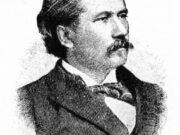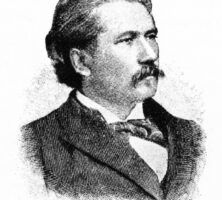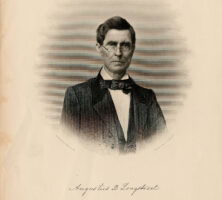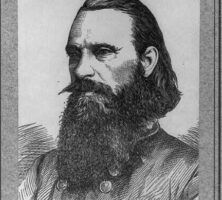The Augusta Chronicle, which started as the weekly Augusta Gazette in 1785, is one of the oldest newspapers in the United States and the oldest active newspaper in Georgia.
It is owned by Augusta-based Morris Communications and in 2011 had a daily circulation of nearly 60,000 under the editorship of Alan English. The Georgia Press Association has consistently named the Chronicle one of the state’s three best dailies, awarding it the top “General Excellence” honor in 2011.
Beginnings
The earliest incarnation of the publication began in 1785, when printer Greenberg Hughes founded the Augusta Gazette. Hughes left Augusta the following year, and John Erdman Smith, considered to be the “true” founder of the Chronicle, continued the newspaper under the name Georgia State Gazette or Independent Register. Smith, who served as publisher until 1803, used a quotation from the Georgia constitution on the masthead: “Freedom of the Press, and Trial by Jury, to remain inviolate forever.” In 1789 Smith changed the name of the newspaper to the Augusta Chronicle and Gazette of the State.
Upon Smith’s death in 1803, Dennis Driscol assumed the editorship. A staunch Republican, Driscol acquired a reputation for maligning the British and attacking the editors of the rival Augusta Herald within the pages of the Chronicle. In 1810 he sold the publication to George Adams and Benjamin T. Duyckinck. These two men were involved, along with various other editors, in producing the Chronicle (known as the Augusta Chronicle and Georgia Advertiser from 1821 to 1825) until 1823. That year William Hobby, one of the Herald editors so disliked by Driscol two decades earlier, acquired the newspaper. Hobby lasted only two years before selling the operation to A. H. Pemberton.
Antebellum Era
Pemberton, who shortened the newspaper’s name to Augusta Chronicle, used his editorship to voice opposition to the growing abolitionist movement, and by 1831 he advocated secession. During his tenure the Chronicle initially resisted the coming of the railroad to Augusta, expressing concerns for the health of the river trade that had long sustained the city. In 1835 Pemberton put the publication up for sale, and the following year the Chronicle merged with the competing State Rights Sentinel. Owned since 1833 by prominent lawyer and writer Augustus Baldwin Longstreet, the Sentinel had recently passed into the hands of William E. Jones, who assumed the editorship of the merged Augusta Chronicle and Sentinel. The first issue of the new paper, which was also Augusta’s first daily newspaper, debuted in January 1837.
Three years later, in 1840, the newspaper was sold once again, this time to brothers William S. Jones and James W. Jones. Under their ownership, the Chronicle became a voice for the Whig Party, which advocated states’ rights and slavery. The Jones brothers adopted several modern practices during their tenure, including hiring professional editors (thereby separating editorship from ownership) and investing in updated printing technology. They were also among the first to realize the potential of the newly invented telegraph machine for acquiring news content, and in 1850 they instituted the first Sunday edition of the Chronicle. By the mid-1850s, the Joneses claimed a circulation of 5,500, the largest in Georgia at the time.
Civil War and Aftermath
After the outbreak of the Civil War (1861-65), the Jones brothers were instrumental in the formation of the Press Association of the Confederacy, a consortium of fifteen southern daily newspapers founded in Augusta in 1862. Later that year the Jones brothers sold the Chronicle to Thomas Chichester and Wellington Stevenson, who in turn appointed Nathan Morse as editor. Morse later became sole owner of the newspaper.
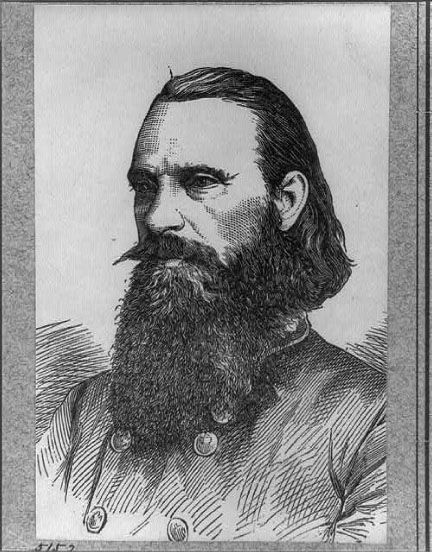
Morse, a Connecticut native, was a controversial choice for the time. Although initially an advocate of the Southern cause, he became increasingly critical of Confederate president Jefferson Davis as the war continued, and he ultimately used the paper to urge an end to hostilities. In 1866 Morse sold the Chronicle to H. P. Moore and former Confederate general Ambrose Wright. Wright provided editorial guidance for the paper during the turbulent years of Reconstruction until his death in 1872. His son Henry Gregg Wright succeeded him, and the following year Moore sold his share of the enterprise to editor Patrick Walsh, who assumed full control of the Chronicle upon Henry Wright’s death in 1875.
During his editorship, Walsh inveighed against lynching and other mistreatment of African Americans, as well as against Populist Party leader Thomas E. Watson. A former printer’s apprentice, he was an Irish immigrant who joined the editorial staff in 1866 before purchasing 50 percent of the paper in 1873. Along with notable coeditors James Ryder Randall, Pleasant A. Stovall, and Thomas D. Murphy, Walsh helmed the Chronicle until his death in 1899. In 1877 he acquired the rival Augusta Constitutionalist, and in the 1880s he was among the first to use newsprint made from locally produced pine pulp. Active in Democratic politics, he served as a U.S. senator in the 1890s and was elected mayor of Augusta in 1897. A statue of Walsh stands in front of the city’s old federal courthouse.
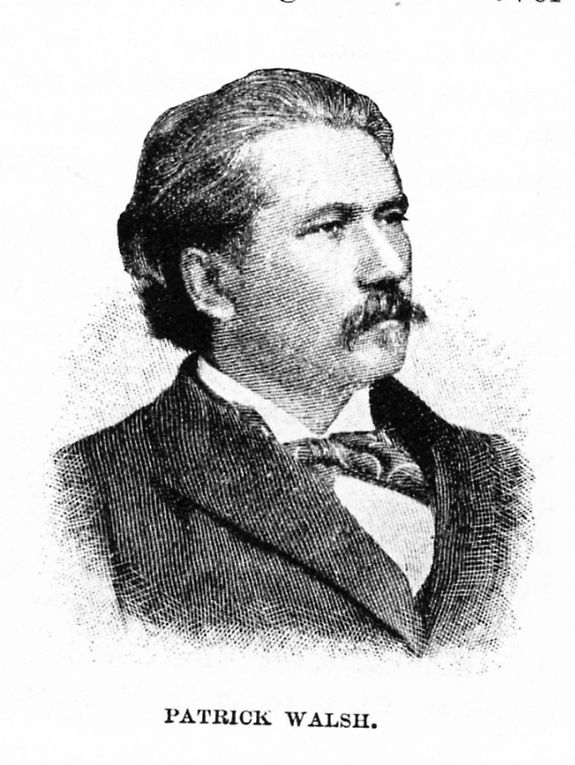
Early Twentieth Century
The Chronicle was managed by Walsh’s estate until Thomas W. Loyless and H. H. Cabiness purchased it in 1903. As editor, Loyless took a dangerous stand against popular opinion in 1915 when he supported the decision of Georgia governor John M. Slaton to commute the death sentence of Leo Frank, an Atlanta Jew accused of murdering a young girl. He also condemned the subsequent mob lynching of Frank in Marietta and called for the participants to be brought to justice. In 1919 Loyless left Augusta for Columbus, where he became associated with Julian Harris at the Columbus Enquirer-Sun. He also partnered with George Foster Peabody to restore the facilities at Warm Springs and was among the first to greet future U.S. president Franklin D. Roosevelt when he arrived at the resort in 1924, seeking relief for his polio.
Loyless was succeeded at the Chronicle by Thomas J. Hamilton, who was notable for his editorial efforts to promote the construction of dams along the Savannah River. In 1929 Hamilton sold the Chronicle to International Paper and Power Company but continued as editor until 1937, when he was fired by company president William S. Morris Jr. Morris promoted Robert Lee McAllister Parks to the editorship.
Morris Ownership
In 1945 Morris purchased a controlling interest in the Chronicle from International Paper. Under his leadership the paper broke with its longstanding support of the Democratic Party by endorsing segregationist Strom Thurmond, a State’s Rights Democrat, over Harry S. Truman in the 1948 U.S. presidential election.
In 1955 Morris purchased the remaining stock of the Chronicle as well as the rival Augusta Herald, operating both newspapers under the umbrella of Southeastern Newspapers. (The Herald ceased publication in 1993.) The following year the company acquired Radio Augusta, which managed the radio station WRDW and television station WRDW-TV. In 1959, after two decades as editor, Parks died and was succeeded by Louis C. Harris.
In 1966 Morris retired, passing the role of president and publisher of the Chronicle to his son, William S. “Billy” Morris III. In 1970 Morris III established Morris Communications Corporation, which supplanted Southeastern Newspapers. Under his leadership, the company diversified into magazine and book publishing, outdoor advertising, and commercial printing services, in addition to acquiring more newspapers. During this period the Chronicle was one of the first newspapers to computerize its newsroom and pressroom, and to digitize its archives.
In 2001 the subsidiary Morris Publishing Group was formed to administer the newspaper-publishing arm of Morris Communications. By 2009 Morris Communications held thirteen dailies, including the Athens Banner-Herald and the Savannah Morning News, and thirteen nondaily papers, including the Georgia publications Bryan County Now, Columbia County News-Times, Effingham Now, McDuffie Mirror, News and Farmer and Wadley Herald/Jefferson Reporter, and Sylvania Telephone.
Under the Morris family the opinion page of the Chronicle, in contrast to the homogenized content of many American newspapers, has maintained a politically conservative editorial voice. Some political observers believe that the Chronicle’s influence grew with Georgia’s political turn toward the Republican Party in the late twentieth and early twenty-first centuries. In September 2004, however, the Chronicle surprised the journalistic community by supporting the Augusta mayor’s decision to remove the Confederate flag from a display along the city’s Riverwalk. “Whether the heritage people like it or not, more than just the NAACP takes offense at the Confederate flag,” the paper opined. “It offends other citizens too, and not all of them are black. Some are white.”
As of 2011 Morris III continued his leadership of Morris Communications as chairman and chief executive officer, while his son William S. “Will” Morris IV served as president.


